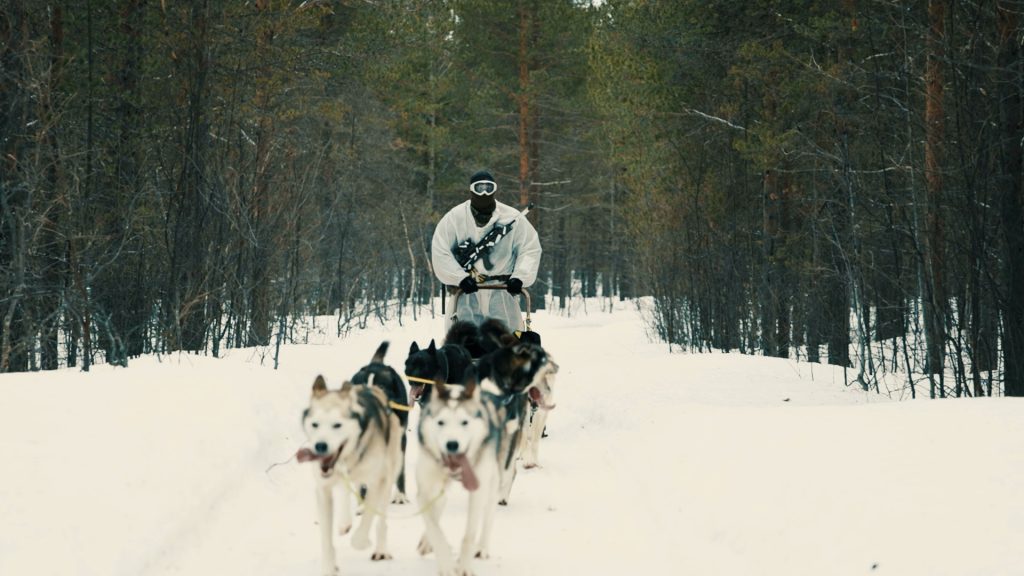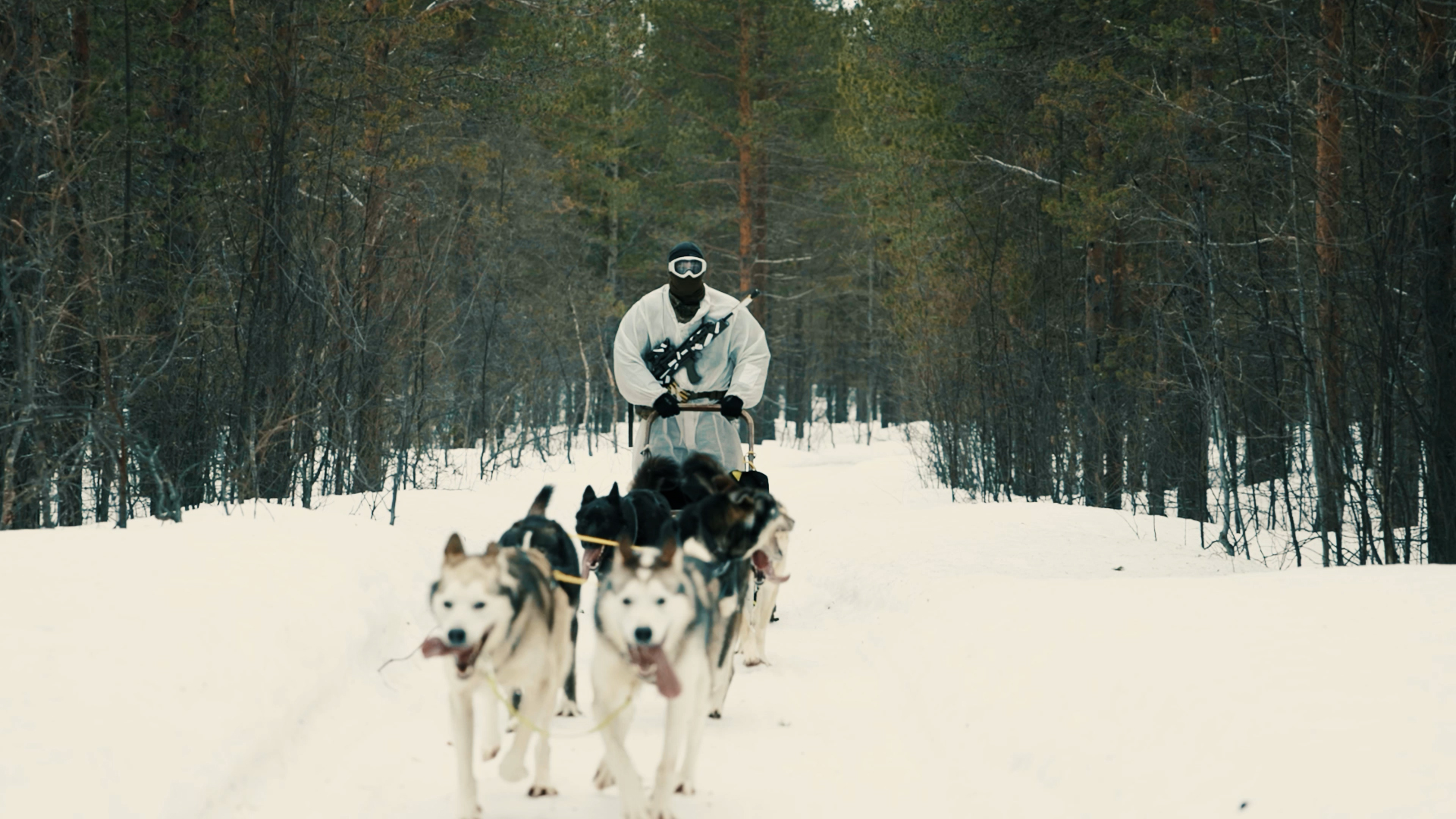
Britain’s elite commandos have trialled using dogs to supply troops operating deep behind enemy lines with ammunition and food in the Arctic Circle.
Specialists from Chivenor-based Commando Logistic Regiment and the Commando Helicopter Force’s Ground Mobility Troop trained with huskies during their deployment to Northern Norway to look at how the dogs could be used on high-risk supply runs into adversary territory.
Known as a Combat Service Support Squadron, the group of Royal Marines and Army Commandos are responsible for punching through the front lines and quickly supplying advanced commando raiding parties with ammunition, fuel, food and medical kit.
Whisky Squadron is made up of expert engineers, logisticians and drivers as well as protection troops well-armed with heavy and grenade machine guns, taking lessons from Russia’s illegal war in Ukraine on the way in which logistics has continued to evolve on the modern-day battlefield.
Mainly operating at night, the squadron uses various methods to reach the raiding teams – on foot, skis or snowmobiles or in some cases using tracked vehicles and trucks depending on the delivery size. The emphasis is on speed and remaining hidden.
The commandos looked at how sleds pulled by huskies – known for their strength and endurance – could help deliver supplies to troops, making considerations on the types of operations canine companions could be deployed on.
The squadron looked at the distance the dogs can travel, how snow conditions can affect their speed and endurance, the planning required to navigate complex routes given the significant speed the huskies reach that make them unable to make quick turns.
The need to avoid compromise while restocking hidden caches was also considered, given the huskies would become restless if left too long.
“We have been addressing the threat of high tech weapons by looking at low tech, low signature solutions, like the huskies, to resupply advanced forces,” said Captain Al Hunter Royal Marines, about the training with the dogs from Norwegian organisation Riverland Husky.
This training was just one small part of Whisky Squadron’s inaugural deployment, which has bonded the deployed troops and headquarters tightly together having only formed six months ago.
Marine Robert Swart, a Weapon Technician said: “As a young marine you want to come out to Norway and test yourself in one of the hardest environments in the world, operating in the frozen plateau is arduous and a great way to confirm one’s soldiering ability.”
Private James Gledhill, a Royal Logistics Corps Logistic Supply Specialist, added: “As a young soldier you read the news and see what is happening today in Ukraine, I think this more than any other exercise serves as a mission rehearsal to make sure we are ready if the worst were to happen to stand shoulder to shoulder with our Norwegian partners.”
Whisky Squadron are responsible for operating in the extreme cold of the Arctic with 45 Commando as part of the Littoral Response Group (North), a Royal Navy task force designed to react to world events in Northern Europe’s waterways and chokepoints.
Delta Squadron, meanwhile, are responsible for operating in desert and jungle with 40 Commando, which forms the main punch of Littoral Response Group (South) that keeps a continuous presence in the strategically-important Indo-Pacific.
The need for these squadrons is borne out of the Commando Forces’ return to raiding operations, landing in small teams on coastlines to cause mayhem on an adversary.
Major Rory Bate of the Royal Electrical and Mechanical Engineers, the Officer Commanding Whisky Squadron was jubilant about the inaugural deployment of his squadron in its new role.
He said: “Having such a firm offer of support for the Littoral Response Group as it counters the pernicious threat faced in Northern Europe is reassuring. With such a responsive and credible squadron, we are able to adapt to the need of the Strike Companies and literally deliver the goods.”
The early phases of the deployment taught the commandos of Whisky Squadron’s Fenrir Troop essential skills in surviving, moving and fighting in the Arctic, mastering the ability to ski with ever-increasing loads in their bergens and pulks.
This culminated in a week-long phase where the whole troop deployed on the multinational Exercise Nordic Response to carry out their main responsibilities; recovering stricken vehicles, repairing vehicle breakdowns in the field, conducting supply missions and punching through enemy lines.
The commandos landed ashore from RFA Mounts Bay instantly getting to work, delivering 18,000 litres of diesel and 3,500 ration packs to troops operating across Northern Norway.
Sergeant Ashley Marsh Royal Marines, the Fenrir Troop’s second in command, said: “In today’s and tomorrow’s battlefield slow large moving vehicles are vulnerable. We must continue to invest into Combat Service Support as a concept in order to remain a credible force that can support 45 Commando and allied forces.”

